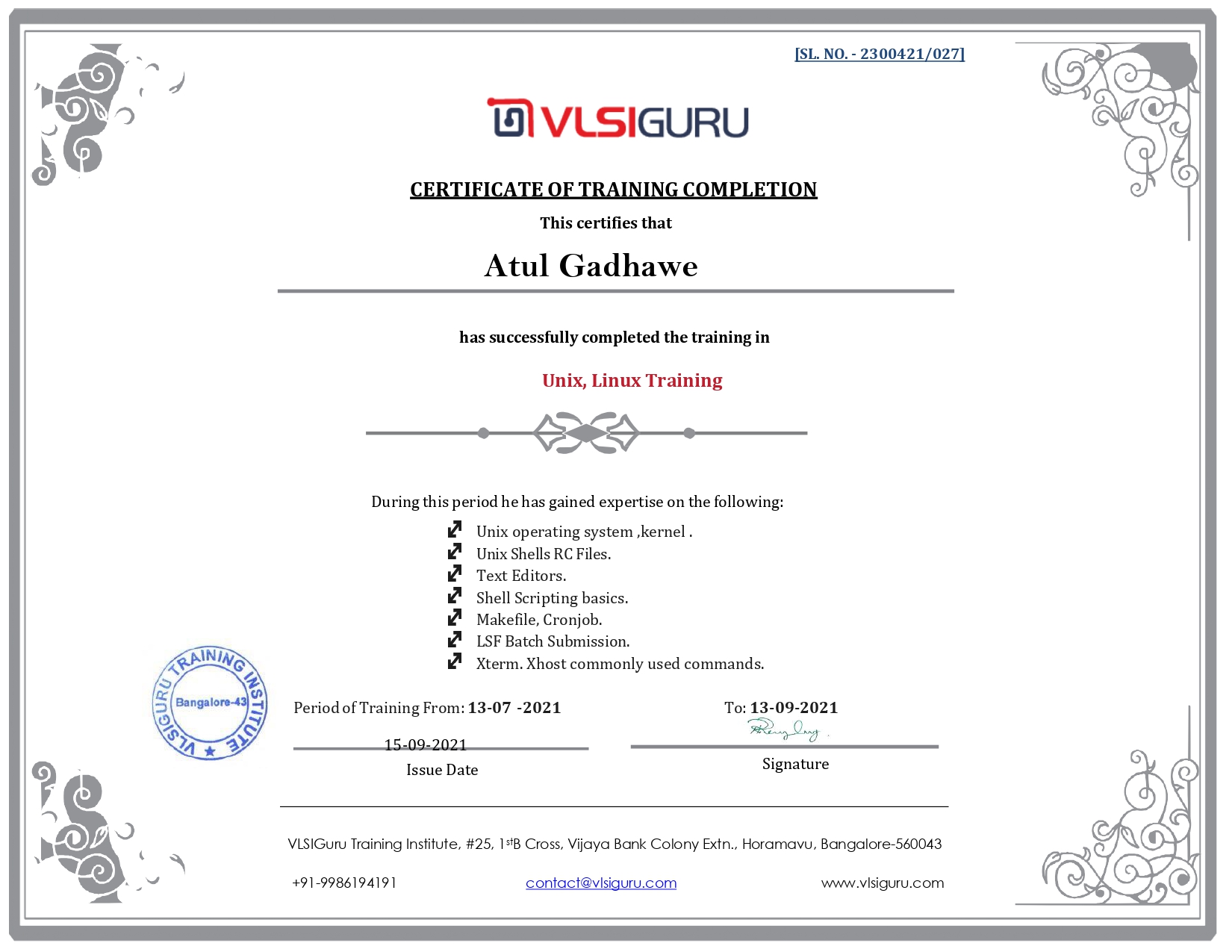Unit 1: Introduction to Shell Scripting
• What is a shell script?
• Types of shells: bash, sh, etc.
• Setting up the development environment: Terminal emulators, text editors.
• Basic shell commands: ls, cd, mkdir, rm, cp, mv, echo, etc.
• Variables and data types: String, integer, and basic types.
• Writing and running simple scripts.
• Permissions and execution: chmod, shebang
Unit 2: Control Structures and Flow Control
• Conditional statements: if, else, elif.
• Comparison operators
• Logical operators
• Looping structures
• Break and continue statements.
• Case statements: switch-like behavior in shell scripts.
Unit 3: Input and Output Handling
• Reading user input: read command.
• Command line arguments
• Output redirection
• Pipes and filters: |, grep, awk, sed.
• Here documents: << syntax for multiline input.
Unit 4: Functions and Script Organization
• Defining and using functions.
• Passing arguments to functions.
• Return values from functions.
• Local and global variables.
• Modularizing scripts: breaking down large scripts into functions.
• Script organization best practices.
Unit 5: String Manipulation and Regular Expressions
• String concatenation and interpolation.
• String manipulation: length, substring extraction, searching.
• Regular expressions: basic syntax and usage.
• Pattern matching with grep, sed, and awk.
Unit 6: Advanced Topics
• Arrays: declaring, accessing elements, looping through arrays.
• Associative arrays (dictionaries): key-value pairs.
• File handling: reading, writing, appending.
• Exit status and error handling: exit codes, trap command.
• Advanced scripting techniques and tips.
Unit 7: Practical Projects
Unit 8: Projects and Assessment
• Students work on individual or group projects.
• Project presentations and code reviews.
• Assessment of scripting skills through practical tasks.
• Wrap-up and discussion on future learning paths.
• Remember, the actual duration of each unit may vary based on the pace of
the course and the level of expertise of the participants. Additionally,
practical exercises, assignments, and real-world examples should be
integrated throughout the course to reinforce learning
Course Overview
Most of the projects are executed in linux platform, hence every engineer requires a good working knowledge of Linux commands. The good expertise with Linux commands makes it easy for people to ramp up on the project.
Linux training provides participants with practical hands on exposure to all commands with dedicated lab sessions. Course also includes version control management hands on exposure.
| Course | Linux commands Training |
|---|---|
| Duration | 4 weeks |
| Theory Sessions | 3.5 Hours on Saturday & Sunday |
| Practice Sessions | 3.5 Hours on 3 weekdays (Working professional can practice from home, with remote support) |
| Mode of training | Classroom training |
| Online training using live training sessions | |
| Certificate | Issued based on 50% assignment completion as criteria |
| Assignments | 5 |


- 1-1 Dedicated Mentor Support
